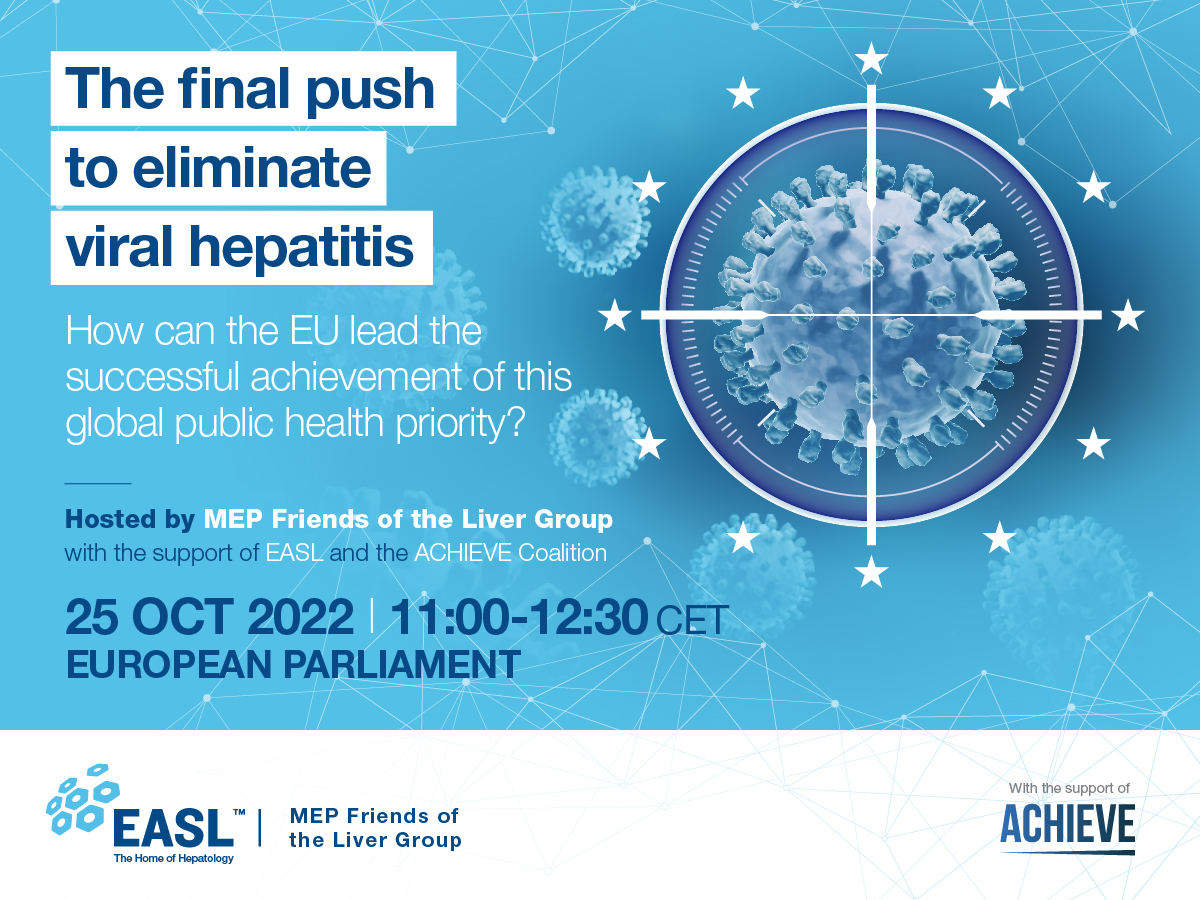
On the 25th October, EASL together with the ACHIEVE Coalition, organise an event at the European Parliament with the members of the EASL Friends of the Liver Group on the occasion of Liver Cancer Awareness month. The discussion will focus on the EU efforts toward Viral Hepatitis Elimination and the tools that the EU could deploy to help meet the 2030 elimination deadline, such as the Europe’s Beating Cancer Plan and the EU4Health funding options.
Objectives of the meeting
In June 2022, the World Health Assembly approved the implementation of the WHO’s Global Health Sector Strategy Against Viral Hepatitis for 2022-2030, which reaffirms the 2030 elimination goal whilst also highlighting liver cancer as a key driver of hepatitis B and C liver-related mortality.
Whilst some EU Member States are well on track, others are lagging behind, resulting in health inequalities. ACHIEVE and EASL has collated data from different studies which demonstrate these inequalities – on access to vaccination against Hepatitis B, on access to information about transmission routes and how to prevent this, on access to diagnosis and linkage to care for viral hepatitis B and C, on access to regular check-ups and access to preventive treatment for liver cancer. These inequalities exist across geographies and particularly affect vulnerable populations.
At the meeting of the MEP Friends of the Liver Group we would thus like to discuss the following:
- What can the EU collectively do to lead and achieve this global health priority?
- How can Europe’s Beating Cancer Plan support?
- Which are the funding needs from EU4Health for the years to come, and how can it be ensured that Member States and regions in greatest need will profit from this funding?
- How can good practices be shared and picked up?
Speakers
Mr Cyrus Engerer, Co-chair of the MEP Friends of the Liver group,
Mr Cristian-Silviu Busoi, Member of the European Parliament
Prof. Maria Buti, EASL Policy and Public Health Councillor
Ms Lina Nerlander, The European Centre for Disease Prevention and Control
Ms Rimalda Voske, The European Commission, DG SANTE
Prof. Daniel Kelly, The European Cancer Organisation

